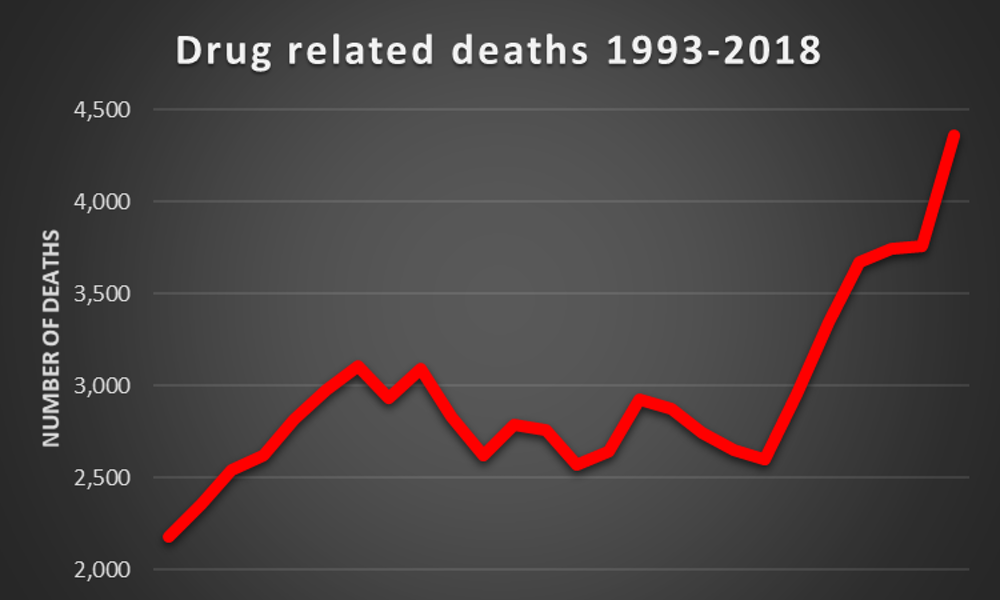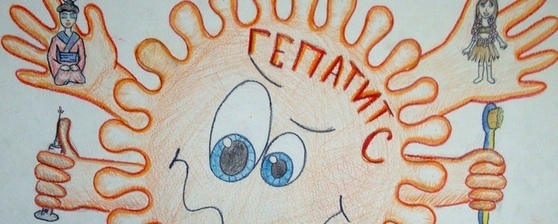I walked around the park grounds checking out the jubilant crowd of young partygoers. A gospel-sounding, organ-dominated groove played in the background. It was a familiar sound. I couldn’t name it; I also couldn’t ignore it. My attention, though, was being beckoned by one of the volunteers from The Loop. Excited, this kind bloke told me about the harm reduction services they were providing at the festival.
His huge handlebar moustache and crew cut evoked thoughts of Confederate soldiers, flags, monuments, the whole nine.For a southern Black person, this wasn’t a good first impression. But I knew this was my issue, not his, so I did my best to focus on anything other than his facial hair.
I checked out his gear. It was casual—red-rimmed bifocals, a tie-dyed T-shirt, and cargo shorts—and seemed incongruent with his hairstyle. In an attempt to reciprocate the kindness and respect he showed me, I tried to listen more attentively.
“Harm reduction” doesn’t capture the complexity associated with love or war or drug use.
But it was difficult because a recording of Al Green’s 1972 classic, “Love and Happiness,” blasted from the sound system. “Something that can make you do wrong, make you do right,” Green sang with a great deal of sorrow combined with the rapture expressed by a true believer. His brilliant treatment of the anguish and joy that can result from being in love hit me like an amphetamine.
I reflected on the idea of harm reduction. It doesn’t capture the complexity associated with grown-up activities such as love or war or drug use. Instead, it preoccupies us with drug-related harms. And the connection between harms and drug use is reinforced repeatedly through our speech. This connection in turn narrows our associations, conversations, feelings, memories and perceptions about drugs and those who partake. Perhaps even worse, it relegates drug users to an inferior status. Surely, only a feebleminded soul would engage in an activity that always produces harmful outcomes, as the term implies.
In that moment, listening to Al Green testify, alongside my handlebar-moustached host, I felt certain that the term harm reduction had to go. It had worn out its welcome. We needed a new term, new language; because the language we use shapes how we think and behave. We need to think about drugs and behave in a more nuanced manner. We need to cut the bullshit and stop pretending drugs inevitably—and only—lead to undesired outcomes.
I pondered the question of what term or phrase I would use as an alternative. I had no idea. But I knew the updated expression had to be multifaceted. It had to be flexible enough to accommodate myriad drug effects, whether they were good, bad or indifferent. And, like the song “Love and Happiness,” it had to capture complex and even conflicting constructs.
“Health and happiness” popped into my head.
“Health and happiness” popped into my head. I liked it. It sounded like “love and happiness” but included the important word health, so it could be broadly applied to other activities in which we engage.
For example, traveling via car presents potential risks to one’s health as well as potential benefits that impact one’s happiness. Wearing a seatbelt, replacing tires so they are not worn, and making sure the brakes and windshield wipers function properly—all can be conceptualized as “health and happiness” strategies. Similarly, setting aside at least an eight-hour sleep period following a bout of heavy stimulant use is also a “health and happiness” strategy.
Furthermore, the phrase health and happiness reminded me of the noble ideals laid out in our Declaration of Independence. The signers unequivocally declared that it is our unalienable right to pursue life, liberty and happiness. The bottom line is this: Millions of Americans, including me, have discovered that certain drugs facilitate our ability to achieve this goal, even if only temporarily.
I recognize that I have no authority to coin a phrase for an entire field, especially one comprising many experts who have been doing this work long before I even knew the field existed. That isn’t my goal. Frankly, I think there need not be a specific term for harm reduction. We already have such terms: common sense, prevention, education, and the like. I don’t much care which term is used, just as long as it doesn’t box drug use into an exclusively harmful category and it recognizes the positive features of the experience.
Opioids: A Crisis of Data Collection and Reporting
Unfortunately, simply replacing the term harm reduction won’t do much to combat sensationalist media headlines that too often give the impression that death is the only outcome associated with drug use. Panic-stricken coverage of the so-called opioid crisis is an acute example. “Opioids Responsible for Two-Thirds of Global Drug Deaths in 2017: UN” was the title of a typical article on the subject. In the piece, the author concluded that opioids were “responsible for two-thirds of all drug deaths worldwide.”
Really? I doubt it. I am not suggesting that fatal drug overdoses don’t occur; they do. Nor am I suggesting that we, as a society, should not be concerned about such cases; we should. My point is that the evidence for this claim is weak at best. Events leading to drug-related deaths are often far more ambiguous and complex than media reports would have you believe.
In the United States, the Centers for Disease Control and Prevention (CDC) collects mortality data from death certificates, which contain the cause of death. These certificates are filled out by thousands of different people across the country. Each state determines its own standards and requirements for individuals conducting death investigations. As a result, death investigators vary widely in their training and experience. Some are medical examiners and others are coroners. Medical examiners are physicians with specialty training in forensic pathology, whereas coroners are not required to have any medical training (except in Arkansas, Kansas, Minnesota and Ohio).
Any eligible voter can become a coroner, regardless of their knowledge—or lack thereof.
Usually medical examiners are appointed by a chief medical officer; coroners are elected by the voting public. Remarkably, any eligible voter can become a coroner, regardless of their knowledge—or lack thereof—on issues related to death investigation. What’s even more absurd is that most regions in the United States rely on coroners. As you might imagine, these different standards can and do produce considerable variations in the collection and reporting of cause-of-death data, including drug overdose.
Added to this glaring systemic defect is the variety of circumstances surrounding drug-related deaths. In most cases, more than one substance is found in the body of the deceased, and the concentrations of these drugs are often not determined.
Hence, it is difficult, if not impossible, to attribute the death to a single drug because we can’t know which, if any, of the drugs reached a blood level that would be fatal by itself. Whenever officials or reporters claim that a particular drug caused the death, you should ask about the drug’s concentrations in the body and whether other drugs were involved.
This article was originally published by Filter, an online magazine covering drug use, drug policy and human rights through a harm reduction lens. Follow Filter on Facebook or Twitter, or sign up for its newsletter.
This article is excerpted from DRUG USE FOR GROWN-UPS: Chasing Liberty in the Land of Fear by Dr. Carl L. Hart. Copyright @ Dr. Carl L. Hart, 2021. Published by arrangement with Penguin Press, a member of Penguin Random House LLC.
* Dr. Hart is the Ziff Professor of Psychology in the Departments of Psychology and Psychiatry at Columbia University, and a Research Scientist at the New York State Psychiatric Institute. Professor He has published numerous scientific and popular articles in the area of neuropsychopharmacology and is co-author of the textbook Drugs, Society and Human Behavior (with Charles Ksir). His book High Price was the 2014 winner of the PEN/E.O. Wilson Literary Science Writing Award.


